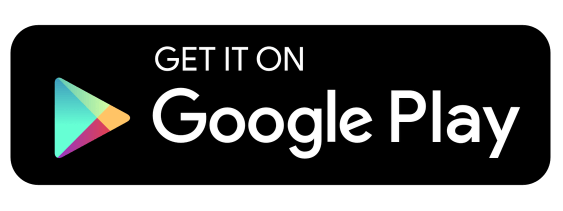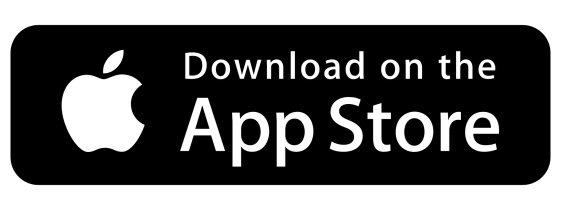Advertising
Technology has played a fundamental role in many aspects of our lives. However, one of the sectors that has benefited the most from this evolution is education. Today, learning a new language, such as English, is within the reach of anyone with access to a smartphone. Apps like Babbel, Duolingo, and Memrise are examples of how technology can transform the learning experience, making it more dynamic, personalized, and accessible. Throughout this article, we will explore how these apps work and how they can make learning English easier for users of different levels.
Advertising
The Power of Technology in Language Teaching
Since the first educational software was first introduced, technology has advanced to provide a more engaging learning experience. And with the advent of smartphones, this evolution has intensified even further. Today, language learning apps are a valuable resource, especially for those who have busy schedules and cannot attend face-to-face classes. In addition, they offer a flexible approach, allowing learning to happen at the student’s own pace and time.
Apps like Babbel, Duolingo and Memrise stand out in the current scenario not only for their practicality, but also for their ability to create an interactive environment that motivates users to learn continuously. They are accessible, easy to use and full of features that facilitate the assimilation of content, all based on methodologies that encourage memorization and practical use of the language.
Babbel: Focus on Conversation and Structured Teaching
Babbel is known for its focus on teaching languages using a practical conversational approach. Unlike many apps that rely on pure memorization techniques, Babbel offers lessons that simulate real-life situations, making learning more relevant and practical. This undoubtedly makes it easier to absorb English vocabulary and grammatical structures.
Another important feature of Babbel is its lesson structure. Each lesson is divided into short modules, which allows users to monitor their progress gradually. In addition, Babbel offers specific courses according to the user's level of knowledge, which ensures a personalized experience. The app also uses voice recognition to help users practice their pronunciation, a feature that undoubtedly contributes to confidence when speaking English.
Finally, it is worth mentioning that Babbel is a paid tool, but even so, its efficient methodology and practical approach make the investment worthwhile for those seeking fluency in the language.


Duolingo: Learn by Playing
While Babbel is more structured and focused on conversation, Duolingo stands out for its gamification. This app has turned language learning into a real game, which makes it extremely appealing, especially for beginners and young people. In Duolingo, each lesson is presented as a level of a game, and the user earns points as they get the answers right, which increases motivation and engagement.

Duolingo's lessons cover everything from basic to intermediate levels of English. They are divided into short activities that involve reading, writing, listening, and speaking the language. In addition, the app uses spaced repetition, a method that has been proven to be effective for long-term memorization. Another positive point is that Duolingo is completely free, although it offers a paid version (Duolingo Plus) with additional features, such as removing ads and accessing offline lessons.
One of the biggest advantages of Duolingo is its active community. The app allows users to connect with friends, share their progress, and participate in discussion forums where they can ask questions and share experiences. This social interaction is an effective way to keep users engaged in learning.


Memrise: Immersion in Authentic Content
Memrise, on the other hand, offers a slightly different approach. While Babbel focuses on conversation and Duolingo gamifies learning, Memrise focuses on immersion. The app uses authentic videos of native speakers in a variety of everyday contexts, which helps students understand spoken English in a natural way. This type of exposure to the language is extremely beneficial, as it prepares the student for real-world situations, where language may vary in speed, accent, and use of slang.
Another interesting aspect of Memrise is its use of mnemonic techniques, which help with memorizing words and phrases. The app encourages vocabulary learning through visual and auditory associations, making the process easier and more fun. In addition, Memrise allows users to choose between different difficulty levels, from beginners to advanced learners, ensuring that everyone can go at their own pace.
While Memrise offers a free version, most of its more advanced features are available in the paid version, which includes more videos and personalized practice tools. However, the quality of the content available for free is enough to provide a solid foundation for learning English.


Advantages of Using Apps to Learn English
Beyond the specific features of each app, there are general benefits to opting for language learning via technology. Firstly, these apps offer flexibility. You can learn on your own time, whether at home, on public transport or during a break at work. This means that studying English doesn’t have to interfere with other daily commitments.
Secondly, many of these apps use artificial intelligence to personalize content according to the level and needs of each user. This type of technology allows learning to be more efficient and targeted, helping students overcome specific difficulties more quickly.
Finally, the fact that the apps are interactive and use different methodologies (games, videos, voice recognition, etc.) keeps the user interested and engaged in the learning process. This is essential to ensure consistency, which is one of the most important factors in learning any language.
Conclusion
Technology has profoundly changed the way we learn, and this is reflected in the success of apps like Babbel, Duolingo and Memrise in teaching English. Each with their own unique approach, these apps offer a practical and efficient way to acquire new language skills. Whether it’s Babbel’s practical conversation, Duolingo’s gamification or Memrise’s immersive learning, the important thing is that these tools are accessible to anyone with a mobile device and a desire to learn.
In the end, it’s all about consistency. Using technology to your advantage can make learning English a fun and efficient activity. So why not experiment and see which of these apps works best for you?
